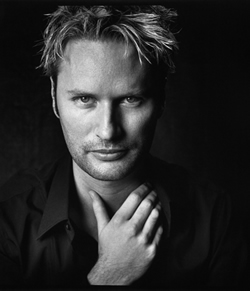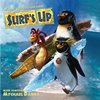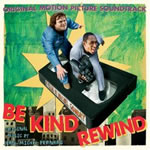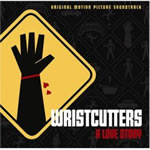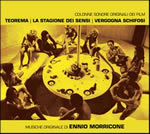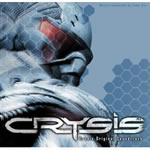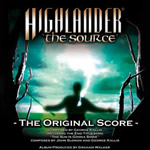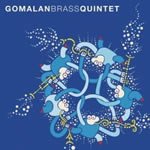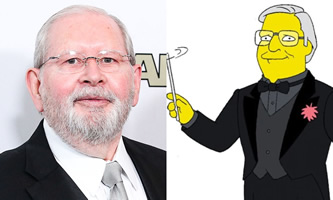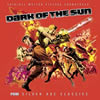 |
Reloading: Brian Tyler Meets Rambo
February 11th, 2008
By Randall D. Larson
This week Soundtrax interviews Brian Tyler about his close encounter with Rambo, the latest incarnation of Sylvester Stallone’s iconic action hero. Tyler discusses working with the Jerry Goldsmith theme and scoring action, Rambo style. We also review new soundtracks to Surf’s Up, In Bruges, Be Kind Rewind, Ennio Morricone’s Teorema/ La Stagione Dei Sensi/Vergoga Schifosi, Highlander: The Source, Inon Zur’s latest gamescore, Crysis, and others. Plus the latest news wrap up from around the film music world.
Brian Tyler Reloading - Brian Tyler Meets Rambo
Brian Tyler is a great choice to score the new Rambo movie, starring and directed by Sylvester Stallone, who revisits and updates his iconic soldier of fortune, now holed up in Thailand, where he joins a group of mercenaries to venture into war-torn Burma and rescue a group of Christian aid workers who were kidnapped by the ruthless local infantry unit. Jerry Goldsmith, who scored the first three films (1982, 1982, and 1988), has been an enormous influence on Tyler and his action writing; Tyler had the unusual predicament of replacing Goldsmith’s last film score, 2003’s Timeline, when it was rejected by director Richard Donner, so approaching Rambo has been both a piece of good fortune and a challenge for the composer. Investing the score with a terrific driving pulse, Tyler balances the action music with a melodic strain that gives the music a powerful poignancy and human element. He also deftly weaves the original Goldsmith Rambo Theme into his new score.
For more information on the score, including online music samples, see: http://music.lionsgate.com/rambo/
I took the opportunity to have a short chat with Brian Tyler on his approach to Rambo after the film’s January premiere in Las Vegas, and he described his experiences sharing billing with John Rambo on the big screen.
Q: How did you become drafted to score Rambo for Sylvester Stallone?
Brian Tyler: Sly gave me a call while in preproduction. The script was written and he was looking for the right guy to score his film. He was listening to my CDs and called me in. We met and talked about wanting to reflect and bring back much of the Jerry Goldsmith thematic material while giving the movie a primal and fierce musical identity that was new to the series. I was thrilled to be asked to score the film since I have been a massive Rambo fan since First Blood.
Q: Obviously Rambo is a film and a franchise with a huge pre- awareness among audiences, and a prior musical signature established by Jerry Goldsmith – who has obviously been an influence on your own action writing over the years. Now that you’ve become immersed in Goldsmith territory in the Rambo environment, did you find that to be an influence, a launching point, a challenge, an inspiration, or what?
Brian Tyler: The music is inspiring to me. I was already very familiar with the Rambo music from all 3 previous films. It was a challenge in that there was a very realistic and gritty tone to the film like First Blood but on a much more epic scale. The Goldsmith material is incredible. I really wanted to try to take that music and blend it with new themes so I could have the score be one seamless unit. And the more I worked with the Jerry Goldsmith music, the more it spoiled me. It is very clearly genius.
Q: How would you describe your thematic and instrumental base of operations for this score? How have you translated the Goldsmith Rambo theme into your own musical setting to make the score your own?
Brian Tyler: I wrote two main themes for the new Rambo theme. One is called the stoic theme, which is a kind of angry, determined ode to Rambo’s inner primal man. It was usually played in the lower brass instruments. What I really wanted was something that was very dark for the Rambo of this film. The other theme was a more anthemic and sweeping theme for the native people of Burma as well as how Rambo related to the character of Sarah. That theme was played on the strings, trumpet, or bansuri. The existing Rambo themes went through a reworking scene by scene as needed. It was absolutely fantastic working with those themes. It was very important that those themes could transition easily into the new themes as well.
Q: What was your technique, in this score, for merging the motif that speaks for the heart of Rambo into the barely-controlled percussive dissonance that is associated with his actions (or their result)? How does/should that work in today’s big action films?
Brian Tyler: Each film is different. But I feel that this film needed to have the music remind the audience that there is heart behind the action. The audience members need to feel invested emotionally in the story to really feel the full impact of the action.
Q: “Atrocities” is a very interesting cue. You’ve essentially achieved through an austere combination of drums and flutes a rather powerful atmosphere that resonates with poignancy usually reserved for strings...
Brian Tyler: “Atrocities” was a unique cue in the score in that it played over CNN footage of actual atrocities in Burma. The tone of the cue had to be nearly documentarian and restrained. That is why the other instruments outside the strings supply the emotional resonance of the music in that cue.
Q: Percussion takes a dominant role in this score, pervading most battle scenes, and in “Rambo Returns,” with its cool, pulsating fusion of strings and percussion. How would you describe your use of percussion in this score?
Brian Tyler: I love percussion, of course, since I am a percussionist. But this was a tall order. Sly wanted there to be symphonic complexity in cues and what the music would say, but in the language of the most primal of instruments. I played countless percussion instruments on this score. It was very, very challenging.
Q: How did you find working with Stallone as a director? What was his input into the score he wanted for the film?
Brian Tyler: It was amazing working with Sly. He really knows what he wants from each scene and knows the way the parts work as a whole incredibly well. He always wanted a lot of percussion and thematic ideas for the score. We worked fantastically together. I am indebted to him.
Q: You’ve written four big action scores in a row now with lots of potent and percussive action music (War, AVPR, Rambo, Bangkok Dangerous)? Is there a common vocabulary in your approach to scoring action that you employ in films such as these, even though the overall tone is of course different? In other words, since an action film is not an action film is not an action film, and yet all need a similar musical drive, what's your technique for making each action scene distinctly different?
Brian Tyler: The movie itself always dictates the vibe for the score. Although those films are all action films, the tones are very different and my approach for each of those films differed greatly. The way I approach scoring action films is actually to not score them as action films at all. Instead, I try to focus in on the characters and the story. Otherwise I can't get any traction thematically as I work. So in a way, my process is more broad than thinking of how to approach specific genres.
Q: You’ve also recently composed Bangkok Dangerous, an action score for The Pang Brothers, known for their Asian horror films. What can you tell me about this score for Bangkok Dangerous, and how did you find working for the Pangs?
Brian Tyler: The Pangs are incredibly dynamic directors. This score was very thematic and modern while reflecting a haunting echo of Thailand. I cannot wait for that one to come out!!
Soundtrack Recommendations
Mychael Danna’s score for Surf’s Up, yet another computer animated anthropomorphic penguin tale, is a wondrous musical ride that is brimming with musical diversity and honest passion. Opening with the enchanting and rather Philip Glass-ian pianistic sonority of “Legends” (and powerfully reprised in “First Round”), Danna immerses the listener in a compelling resonance of splendid music. From the sublime opening track, Danna crafts a witty evocation of modern sports television in “Sports Network Presents,” and then introduces an enthralling heroic motif with “You’re In,” which, along with “Taking on Tank,” elevates the drama to significant musical heights. Danna beautifully supports all of the film’s various nuances, from its comedy to its heartfelt poignancy (have a listen to “The Board Shack,” one of the score’s most intricately heartfelt moments), as the film tells of a penguin with a passion for surfing who wants to win the Big Z Memorial Surf Off. “Boneyards” sets the surfing action with righteously valiant music that resonates with as much crystal clarity as the cresting waves through which our penguin surfs to victory, while “Losers” softens the blow of failure with the sympathy of friendship. “Pointed the Way Back” restores dignity and resolves both score and film in a very satisfying fashion. Danna’s winning score is thoroughly likable and often moving; the album as released by BSX in a limited edition of 1,000 copies.
The prolific Lakeshore label has released a number of notable soundtracks this month, perhaps the most significant is John Powell’s bristling action-adventure score for Jumper, Doug Liman’s exploration of the wonders and hazards of teleportation. The film, while sporting a lavish science fictionesque premise, is well-grounded in gritty reality, and Powell’s score suits that sensibility very well. The composer reunites with his director from The Bourne Identity and Mr. & Mrs. Smith and crafts a score that mirrors the film’s urgency. Just as the film’s Hayden Christensen character can literally appear anywhere, Powell’s music materializes at full power, percussive and insistent, only to evaporate into echoes with a fading pulse of disapparation. A pulsing thrum of electric guitar in “Surf’s Up” (no wisecracking penguins) gives the cue a powerful cadence, while the ongoing percussive undercurrent of tracks like “Bridges, Rules, Banking” and “1000 Volts” lends a mechanistic froth to the character and his quantum leaps from one location to another. A jangling electric guitar fingering with heavy reverb in “Roland Snoops” gives a provocative and mysterious appeal to the enigmatic Samuel L. Jackson character. “Coliseum Tour” proffers a Latin flavored acoustic guitar riffing over strings and brushed drums; quieter moments like “Airport Departure” humanize and personalize the activity with an honest rhythmic tonality, again emphasizing harp, piano, and strings; a very synthetic and percussive pulse is proffered midway through the short track which again gives the idea of the character’s mechanistic, teleportative abilities. Powell exemplifies this further in the next track, “In Hospital,” in which a massive blast of synth and strings and piano wafts out of the underscore in a powerful, slo-mo explosive wave of sonority. “It’s Sayonara” reprises this motif with a very interesting and eclectic instrumental texture, with layers of acoustic guitar, processed acoustic sounds, flutes, strings, electric guitar, and reverbed percussion, which lend an especially profound sonic timbre to the track. As the score continues to develop, it becomes harsher and less grounded in reality, as the character’s teleportive episodes become less controlled and more frantic; “David Comes Clean” mirrors this well through a severe outpouring of horns in the midst of relentlessly dominant echoed and sampled and whiplike percussion; the sound pattern becomes completely synthetic and fantastic, despite a swirling, yearning melodic base of strings, but the patterns into which the melody is set threaten to tear it apart. It’s a massive and raucous track but one of the score’s most powerful moments of barely controlled chaos. “Roland at the Lair” and “Jumper vs. Jumper” continue this progressive strain of action writing, with interesting textures and an insistently rhythmic development, musically portraying the clash between the characters through deftly interlaced textures, rhythms, and hints of humanistic melodies; Powell builds these effectively into a powerful and persuasive climax and conclusion in the score’s final fistful of tracks, resolving the score nicely on a simplified air of sensitive and simple melody in “A Head Start.” The final track, “A Jump Off,” reprises the heavier rhythms and textures but with a far more heroic and assured measurement than the active freneticism with which they were heard previously; with the conflict resolved, Powell restores a unity and proper purpose to the characters’ special abilities.
In Bruges, Carter Burwell’s latest surreal noir thriller score, is a poignant and compellingly atmospheric work that recalls the composer’s Miller’s Crossing and other nuances of his work for the Coen Brothers. The film, starring Colin Farrell and Brendan Gleeson as hit men taking on an assignment in the medieval Belgium city of Bruges (pronounced “broozh” with a silent “s”), makes the most of its historical tourist destination location, setting upon the city’s ancient walls and buildings a quirky and dysfunctional crime story. Lakeshore has provided the score on CD, released this week in a nice package that serves the music well. Burwell’s composition is dour and somberly persuasive, with intricate piano melodies and subtle string measures that waft surreptitiously throughout the colorful landscape, emphasizing the emptiness of the hit men’s lives and the dead-end job they seem to be engaged in here. In contrast is the strident and self-assured theme for Harry, the hit-men’s London boss, also rich in piano and strings but far more confident than the music for his insecure assassins. “Dressing For Death” is one of the score’s most poignant and sad cues, a melancholic tone poem for aimless preparations and inevitable doom.
Lakeshore has put together an enjoyable jazz and pop compilation for the new Jack Black comedy, Be Kind Rewind. The soundtrack combines a variety of previously recorded and new material, jazz and pop standards (Fats Waller, Booker T. Jones, Billy Preston) and an eclectic diversity of tunes by Jean-Michel Bernard, who provided the film’s original underscore, which ranges from mirroring standard piano jazz to building evocative set-pieces to support the film’s comedic homage to moviemaking, such as the raucous Shaw Bros evocation, “Chinese Bamboo.” Most of the underscore is very incidental and creeps along rather indiscriminately, but it has its moments. “Keep Jerry Out,” for instance, emerges into an interesting resonance for cello and harp, the instruments playing off each other to establish a compelling suspense vibe that has its payoff in the urgent activity of the following track, “Little Mikey.” “Robot Karate” and “Plan” are both way cool recreations of 1970s cinematic R&B vibe, while “Magnetic Pee” crafts an unusual tonal pattern for mesmerizing harp, keyboard, cello, and horns (but I don’t want to know what this cue is all about!). Rapper (and Black’s co-star) Mos Def supplies several authentic jazz vocals to several standards like “I Ain’t Got Nobody,” “Ain’t Misbehavin’,” and “Your Feets Too Big” (the latter is a wonderful rendition). The Fats Waller originals and recreations are associated with Danny Glover’s character in the film (he owns the video store that Black and Def work in when, after accidentally erasing the store’s inventory, they try and recreate via home video all the movies they lost), and the underscore takes on a similar tonality which merges well with the pop-culture vibe of the Booker T. Jones material and the like.
Lakeshore’s release of the music for Goran Dukic’s interesting examination of life after suicide, Wristcutters: A Love Story, features an eclectic combination of tunes from the Gypsy/Punk band Gogol Bordello along with an assortment of songs by Gram Parsons, Mushman, Del Shannon, jazzman Artie Shaw, and Screaming Lord Sutch, stitched together by interesting acoustic atmospheres from composer Bobby Johnston (Edmond, King of the Ants). The score proffers a tonal ambiance for the protagonists’ journey through purgatory, while the songs contribute to the film’s sense of joyful and disturbing surreality. On disc the mixture is uneven, but contains some winning moments, with his eloquent rhythmic motifs for the characters highly likable.
Fin de Siècle Media collects a trio of Ennio Morricone scores from 1968-1969 and presents them in a very compatible and likable compilation. The three films, Teorema, Pasolini’s oblique examination of the effect that an enigmatic visitor has upon an upper-middle class Italian family, La Stagione Dei Sensi (The Season of the Senses), Massimo Franciosa’s study of psychosexual mindgames, and Vergoga Schifosi (Dirty Angels, aka Shame And Disgrace), Mauro Severino’s dramatic assessment of the effects of city life upon a quartet of farmboys, are far more psychological in cinematic tonality than Morricone’s more accessible Western scores and crime dramas of the same period; as a result the scores are entirely different and proffered the composer the chance to concoct a trio of especially inventive and unusual musical compositions that supported their film’s psychological subtexts much moreso than their more overt dramatic elements. As liner note writer John Bender puts it, “Ennio Morricone has been to film music what Pablo Picasso was to painting – an endlessly voracious intellectual organism imbibing the entirety of the extant arts environment and then, after reformulating and re-imagining everything absorbed, disgorging shockingly unexpected designs back into the cultural landscape. All three of these soundtracks represent this dynamic phenomenon of individualized creativity at its most obvert and thrilling.” I don’t know if any other words could have put it better; these three scores are extremely different, are severely intonated by instruments andvocalists alike, and are absolutely uniquely flavored compositions and performances.
Teorema emphasizes voices, from the melodic cantata of “Fruscio de foglie Verdi” to the far more atonal ambiance of the title track; La Stagione Dei Sensi contrasts very severe male vocal songs with the elegantly wordless voicings of Edda dell’Orso – both being contrapuntally opposite examinations of provocative sonic sensuality from distinctly separate perspectives; whereas “Dinamica Per 5+1” is one of Morricone’s free-form and ambient jazz improvisations, bizarre but ultimately extremely interesting with its own mesmerizingly voyeuristic rhythm (originally discarded as uninteresting on earlier hearings, I revisited this track on this CD and found it to be completely compelling); and to further confound any stylistic unity on the soundtrack, “In Tre Quarti” is a soothingly melodic waltz played by chamber orchestra; Vergoga Schifosi is also a highly vocal score (all three, in fact, make use of the amazing vocal talents of dell’Orso), roaming from the rock-styled “Matto, Caldo, Soldi, Morto…Girotondo” theme song and its cheerful variant, “Ninna Nanna Per Adulti,”, to dell’Orso’s masterful “Un Altro Mare,” one of the composer’s finest works of this era. All three scores have appeared in various forms over the years on both LP and CD and there don’t appear to be any tracks unique to this recording; however the combination of all three scores onto one disc is especially appealing, as each score shares a similar psychological sensuality and an instrumental and stylistic inventiveness which makes each of them especially worth savoring. The result is both extremely interesting and extremely listenable.
Sumthing Else Music Works has issued Inon Zur’s potent score for the first-person shooter game, Crysis. The Electronic Arts game presents an epic story in which the player defends earth from an alien invasion. Not the most unique synopsis, but the game play is reported to thrust the player into an ever-changing environment, forcing them to adapt their tactics, equipment, weaponry, and tactical approach to conquer battlefields ranging from newly frozen jungle to zero-gravity alien environments. Zur, a master at epic game scores with a handful of features and plenty of TV-movie scores under his belt, provides a pervasive mix of choir and orchestra in a rhythmic-heavy score that may not have a lot of sonic variety but packs a wallop in the epic action department. Zur provides a strong propulsive rhythm of melodically-based motifs and orchestral riffs that build to climax after climax, enlivening the gameplay to epic proportions. There are some marvelously textured moments, such as heard in the sound design in “Loss of Pressure,” and some very rich orchestral and choral dynamics, as in the opening of “Guardians,” (which also display’s Zur’s primary theme in magnificent fashion, declarative horns above a tumultuous undergarment of chanting choir, iron-solid strings, and roiling drums) but there is also a plethora of redundancy in many of the tracks. Still, the music is powerful and potent, and dissonant and dangerous when it needs to be, and it makes for an invigorating listen away from the gunfire and explosions of the game itself.
George Kallis’ score for Highlander: The Source, Brett Leonard’s latest chapter in the ongoing saga of Duncan MacLeod and his fellow Immortals in their quest to locate the Grail of their world, has been released as a digital download from iTunes. Kallis, a former copyist and orchestrator, provides a vibrant fantasy adventure score with choral overtones and an epic sonority that really sounds terrific. The music is epic orchestral with intrusions of rock and roll and metal riffing that give it a contemporary energy; the fusion of the two actually work pretty good here. The main focus of the score, though, is on the orchestral material, and this is consistently ambitious and grand in scale. With 19 score tracks (plus the closing song, “The Sun Is Gonna Shine,” composed by Kallis and John Sloman), there’s almost an hour of music. The score is well orchestrated and performed, delineating a musical environment of stalwart heroes, dangerous landscapes, and brutal passion. “The Guardian Rises,’ with its initial intonations of Holst’s Mars, Bringer of War, emerges into a bristling adventure motif, expending into a vivid action piece with touches of choir and deep, up-front piano notes, morphing into a Xena-like rhythm cue for voices over synths and orchestra. “The Guardian Approaches” builds a cool orchestral rhythm embellished with humming male chorus over an effervescent riff of incessant strings, pausing for emanations of a very strange warbling ethnic wind instrument before continuing to develop the brooding cadence into a heady crescendo for orchestra and men’s choir. A triumphant main theme raises its massive head frequently throughout the score, facing thundering percussion, wickedly eerie synths, and raging orchestral onslaughts; “The Fight for Anna” is a magnificent climactic track that builds to a ferocious crescendo and then resolves the score quietly, with echoes of ethereal female voice and low horns, resounding with triumphal finality. It’s quite a good score from a talented newcomer to scoring.
Oh: there are two soundtracks available on iTunes with very similar cover illustrations: one is actually called Highlander: Protect The Faith and includes nine score tracks, 10 song tracks by various artists “inspired by the Highlander Legend,” and eleven short snippets of dialog However, this version does include half a dozen tracks that make up a very good interview with Kallas about the score and its creation and design, interviews with songwriters John Sloman, Chris Cawte, the film’s music producer Graham Walker, and the bands Spot and Sevenday, so it provides a rather unique background into the film’s music. There is also a 4-page digital booklet that contains information about all of the tracks on the “Protect the Faith” album. Significantly, though, it also contains nine additional tracks (40 mins) of score music not on the actual soundtrack album.
Former Nine Inch Nails keyboardist and programmer Charlie Clouser continues to refine his darkly atmospheric blend of synths and samples for the Saw horror movie franchise (while similarly providing effective horror scores for Dead Silence and Resident Evil: Extinction). His latest effort, for Saw IV, sees a single cue on the “soundtrack” album released by Artist’s Addiction records; although limited edition releases of his full scores for Saw II and Saw III found their way into release so perhaps we’ll get more of IV in the future. While the Saw franchise may be better known, musically, for its mix of thrash, metal, and industrial songs by all manner of bands known for such music, Clouser has helmed the film’s mesmerizingly dark and disturbing electronic underscore and given the film’s their true sonic edge. While most modern horror films make the most of hybrid, textural, ambient underscores, Clouser has done what many listeners never thought possible: taken horror underscore even darker. His mixture of electronic tonalities, uniquely inventive sonic textures, sampled choir intonations, and flight-inducing rhythms concocts a mesmerizing and claustrophobic atmosphere that as just as ominous, frightening, and explosive as the trap-laden film itself. Oh the Saw IV soundtrack album, which contains 18 songs, most of which are never heard in the film, Clouser’s track, “Just Begun,” is a brutal rhythm track born to drive the kind of pervasive cruelty that the franchise’s behind-the-scenes villain, Jigsaw (unforgettable performed and intoned by Tobin Bell) invests into his increasingly inventive and malicious (and logistically impossible) traps. Using all manner of sonic textures, layers, patterns, riffs, and pads, Clouser invests the score with a treacherous terrain of terrifying timbres, crafting enough of a discomforting sound environment to keep the listener – and viewer – completely on edge. Exactly what a horror score should do. Poetically frightening, Clouser’s score for Saw IV, like its trio of predecessors, is an unrelenting sonic cacophony of disturbiana, drifting below everything else in the film like a liquid fog, or a slowly solidifying whirlpool.
Here’s a tidbit I came across which is well worth seeking out: the first self-titled album by the Gomalan Brass Quintet, released on CD by Summit Records in 2004. Amid the typical classical pieces performed nicely but typically by this Italian brass ensemble, is a fantastic 9:16 minute suite of themes by Ennio Morricone, wonderfully transcribed for horns. Ranging through The Mission, into the thunderous main theme from The Good, the Bad, and the Ugly, and progressing through the harmonica theme Once Upon A Time In The West, dolefully intoned by low trumpet, the quintet opens into the raucous Cheyenne theme from the same score (oddly introduced by a chortling little clown saying something in Italian), which merges into Jill’s Theme, which brings us back into an especially snarling version of the GBU motif. The interpretation of Morricone’s intricately conceived compositions are perfectly designed for the brass ensemble, which gives the themes an amazingly unique and fresh sound. The CD also includes variations on Alan Silvestri’s Forrest Gump theme and two pieces by John Williams (Schindler’s List theme and ”Olympic Fanfare”) and, to close things off on just the proper manic note, we have a brass quintet arrangement of Hoyt Curtin’s theme from… the Flintstones. A wonderful couple of minutes. You can hear this rendition on their web site, at www.gomalanbrass.com
Film Score News
The British Academy Film Awards (BAFTAs) were announced Sunday night. While Atonement scooped the Best Picture award, its composer Dario Marianelli missed out on the best music honor, losing to British composer Christopher Gunning, whose impressive and emotive accompaniment to La Vie En Rose swayed the judges, winning the composer his fourth golden mask, though his first for film music. Also missing out on the Anthony Asquith Award for Excellence in Film Music were Alberto Iglesias, for The Kite Runner, Johnny Greenwood, for There Will Be Blood and Marc Streitenfeld, for American Gangster. It was a great boost, though, for relative newcomer Streitenfeld, who remarked… "It is such an honor to receive a BAFTA nomination with such an exemplary group of composers." – Michael Beek in musicfromthemovies.com
Klaus Badelt will score Starship Troopers: Marauder, the third film in the series that was launched by Paul Verhoeven, accompanied by a rousing Basil Poledouris score, in 1997. The new film is directed by Ed Neumeier, who wrote the script for the first film and directed the second one. Badelt is doing the score for another sequel, The Scorpion King: Rise of the Akkadian, which follows the Mummy spin-off from 2002, which had a score by John Debney. Veteran director Russell "Highlander" Mulcahy directs. Badelt's other upcoming films include action film Fire Bay, about US' plans to invade Cuba, and French animated adventure Dragon Hunters. – via upcomingfilmscores.com
A new milestone has been reached by Alf Clausen and his amazing musical design for TV’s The Simpsons: "In the world of film and television music, most projects assign a 'take' number to every piece of music recorded in the studio,” Alf said. “For ease of location, the Simpsons' music recording procedure has been to assign consecutive 'take' numbers to every piece of music recorded in the studio from the beginning of the television series (now in its 19th season). We reached the monumental event of 'take number 25,000' on our Simpsons music scoring session of Feb. 1, 2008.”
The L.A. Times has posted an interview with Michael Giacchino, who spoke briefly about his upcoming Speed Racer and Star Trek scores. On Racer Giacchino said: “It will have an injection of feeling from the old show, but just on a bigger scale. I have every single score from Speed Racer. I found them in Japan on CD, and I love that music. I want to make sure there’s a thread to it, so this feels like it was born out of the show.” Read the whole story: “Tinkering with ‘Speed Racer’ and ‘Star Trek’”
Stage and Screen Online has posted an excellent interview with Oscar/BAFTA-nominated composer Dario Marianelli, who chats with Tommy Pearson about his career high points so far and scores such as Pride & Prejudice, V For Vendetta and of course his Golden Globe-winning score for Atonement. The interview is posted as an audio file at: www.stageandscreenonline.com
In My Sleep, a horror thriller written and directed by Allen Wolf, gets an original score composed by Conrad Pope. Otherwise occupied as John Williams' principal orchestrator currently working on Indiana Jones and The Kingdom of the Crystal Skull, Pope's other scores include the acclaimed Pavilion of Women. He is one of the busiest orchestrators/conductors in Hollywood and works extensively with Mark Isham and also worked on last year's The Golden Compass for Alexandre Desplat. In My Sleep stars Lacey Chabert, Beth Grant, Philip Winchester and Tim Draxl, and begins with the main character waking up in the middle of a cemetery, barely dressed. He has no idea how he got there, but this is not the first time this has happened - the guy suffers from parasomnia, a rare form of sleep disorder. Conrad Pope recorded his orchestral score for the film in Bulgaria. – via upcomingfilmscores.com
Soundtrack News
The Grammy Award winners were announced on February 10th, 2008. These are the winners for film music:
Compilation Soundtrack Album for Motion Picture, Television or Other Visual Media: Love (The Beatles [Cirque de Soleil presentation]) George Martin & Giles Martin, producers (Apple Records/Capitol Records).
Score Soundtrack Album for Motion Picture, Television or Other Visual Media: Ratatouille, Michael Giacchino, composer.
Song Written for Motion Picture, Television or Other Visual Media: "Love You I Do" (From Dreamgirls), Siedah Garrett & Henry Krieger, songwriters (Jennifer Hudson).
- via Soundtrack.netPerseverance Records has released The Film Music of Phillip Lambro, a compilation of four notable film scores released here for the first time. Lambro is perhaps best known for composing the original score for Chinatown, rejected by director Polanski and quickly replaced by Jerry Goldsmith; but Lambro also one of the scariest film scores I’ve ever heard, Crypt of the Living Dead, as well as the cool jazz/pop tunes for Murph the Surf. On this compilation, which I had the pleasure of writing the notes for, Perseverance compiled music the Mineral King, which Lambro won an National Board Of Review award for best music for a documentary, Father Pat and Celebration. Also included is Lambro’s first feature film, Git! This western was released in 1964 and featured a great musical score for a not-so-memorable film.
Phillip Lambro began his career at 18 playing Chopin at Boston’s Symphony Hall. His concert works would be highly praised and performed by such classical legends as Herbert von Karajan, Leopold Stokowski, Roman Rudnytsky and Santiago Rodriguez. Not only has his music been praised but he is a writer as well. His scores for the films, Murph The Surf and Crypt Of The Living Dead are currently available from our label. As you can see, Phillip Lambro is a renaissance man and this newest collection will only cement his reputation for being a brilliant and underrated composer.
To order. click here: http://store.fortytwotradingco.com/soundtracks.html.
MovieScore Media has announced that they will release Basil Poledouris' final score, for the TV pilot The Legend Of Butch And Sundance, on February 26th. The CD release will be limited to 1500 copies.
Coming just in time to commemorate the lavish DVD release, Tadlow Music is arranging for a new digital recording of Miklos Rozsa’s complete score to El Cid. The score, at over 140 minutes of music, will be recorded in two sections. 70 minutes of music, reconstructed by Pat Russ, was actually recorded in September 2007 with Nic Raine conducting. The remaining 70 minutes is being reconstructed by Nic Raine for recordings scheduled in March 2008. The 94 piece orchestra plus choir and church organ are being recorded 24bit, 96khz by Jan Holzner, with mixing being done in Cambridge by Gareth Williams. The whole project is being financed and produced by James Fitzpatrick. Release date for the CD has not yet been announced.
via soundtrackcollector.com
The latest limited edition (2000 copies) CD from La-La Land presents Mark Isham's score from the 1991 action film Point Break. Released here for the first time in any format, La-La Land Records presents Isham’s score to the cult classic, directed by Kathyrn Bigelow and starring Keanu Reeves, Patrick Swayze, Gary Busey and Lori Petty. “Isham’s powerful, soaring blend of orchestra and synth skillfully interprets and bolsters the film’s adrenaline-laced action sequences and awe-inspiring surfing and skydiving set-pieces, resulting in one of the most notable action scores of the 90’s,” the label reports. Exclusive liner notes by Dan Goldwasser incorporate comments from both the director and composer. Limited Edition of 2000 Units. www.lalalandrecords.com
Lakeshore Records will release the original motion picture soundtrack for The Signal on February 19th. The album features original music by Ben Lovett (Last Goodbye). "Working with 3 directors was the most challenging thing I've ever attempted to do, musically,” described Lovett of his collaboration with The Signal trio that included Gentry, David Bruckner, and Dan Bush. “Each director approached their section of the film from very different perspectives, though we were all trying to make one movie and tell one story. It was clear from very early on that the music would need to play a role both structurally and artistically in order to interpret those different angles into one straight line." In The Signal, all forms of communication in the city of Terminus have been jammed by an enigmatic transmission that preys on fear and desire, driving everyone in the city to murder and madness. Told in three parts from three unique perspectives by three visionary directors, The Signal was originally conceived as an experimental round-robin film project where one filmmaker would begin a story then hand it off to another filmmaker to continue and so on until the movie was complete. The story eventually took shape and evolved into a sci-fi/horror/thriller which imagines a world where everyday anxieties become the catalyst for inhuman terror. "I was inspired by the idea we were working with; that fact that the principle adversary in the film is this mysterious visual and aural phenomena that is driving people to madness opened up a huge area to explore,” said Lovett, “When you're dealing with a noise that makes you go crazy, musically you are presented with a lot of possibilities." This idea translated into over 70 minutes of music composed for the apocalyptic thriller. The film hits theaters on February 22; the soundtrack will be available on February 19, 2008.
www.signalmovie.com
www.benlovett.com
New from Intrada is John Barry’s poignant and Oscar-nominated score for Mary, Queen of Scots. Scored in 1971, one of the composer’s most prolific years (he moved from the grim Thirty Year's War tale, The Last Valley, to the haunting music of Walkabout, then to Mary, Queen of Scots and finally to James Bond in Diamonds Are Forever). “While It was Barry's powerful score to The Lion in Winter that persuaded producer Hall Wallis and director Charles Jarrott to hire Barry, his approach to Mary, Queen of Scots was substantially different,” notes the label. “Here the emphasis was on intimacy. As Barry describes, ‘It was much more feminine. Lion in Winter had it's soft spots, but it was very forceful. Last Valley was a war story, a lot of fighting and killing. Mary, Queen of Scots was almost like a chamber piece compared with the others.’” Adds Jon Burlingame in his perceptive and illuminating liner notes, “Alternately dignified and regal, romantic and bittersweet, John Barry's music for Mary, Queen of Scots evokes the period, enhances the atmosphere and underlines the emotions. “ Composing the music for this film was a true joy for Barry, and resulted in an Academy Award nomination. The film stars Glenda Jackson and Vanessa Redgrave about rival cousins, one Queen of Scotland, the other Queen of England, and their romances, treachery, and the ultimate downfall of one Queen. Previously issued in 2001 on a limited edition on the private label, Artemis (where it was paired with Delerue’s Anne of the Thousand Days; Silva Screen also issued a re-recorded soundtrack the same year), Intrada’s new release features the same presentation of the original 1971 LP program on compact disc, in vibrant stereo sound from the original master elements and is limited to 3000 copies.
FSM’s Silver Age Classic for January is Jacques Loussier’s 1968 adventure score for Dark of the Sun. Starring Rod Taylor and Jim Brown as mercenaries (the film is also known as “The Mercenaries”) on a mission in war-torn Congo of the early 1960s to retrieve refugees and an expensive cache of diamonds before they can fall into the hands of Simba rebels. “Loussier’s score matches the offbeat melodic invention of Ennio Morricone and the brassy inflections of John Barry’s James Bond scores while remaining the very personal work of its composer,” notes FSM. “The main theme consists of three layered ideas: a plucked pulse, a jazzy, syncopated bass line for piano and harpsichord, and a distinctly European minor-mode melody often voiced by strings. The score expresses the tragedy and subtext behind the violence of the on-screen images, while acknowledging the action explicitly in several jazzy action cues.” FSM’s definitive CD of Dark of the Sun features the complete score (less one brief cue which was lost) in stereo, containing all of the music from the previous MGM Records LP (and Chapter III CD) – and much more – in improved sound quality. Liner notes are by Didier C. Deutsch, Alexander Kaplan, and Lukas Kendall incorporating new comments by the composer. Also released last month as their Golden Age Classic is Dimitri Tiomkin’s lavish and long 1955 costume epic score for 1955’s Land of the Pharoahs, presented in a full 2-CD set, with alternate and additional selections, painstakingly assembled from the monaural mixdowns saved in the Warner Bros. vaults (although recorded in stereo, the score survives only in mono; however, the use of separate tracks for percussion, chorus and other solos has allowed several passages to be reconstructed in stereo).
Varese Sarabande will release George Fenton’s score for Fool’s Gold, Warner Bros’ romantic comedy/action adventure starring Matthew McConaughey and Kate Hudson as treasure hunters, on March11th.
Beat Records of Italy have announced their release of Francesco de Masi’s score to 1988’s Thunder III, a kind of Italian Walking Tall revenge actioner. Fabrizio De Angelis directed all three Thunder films; de Masi scored the first (1983) and last (1985’s Thunder II was scored by Walter Rizatti). De Masi scored the films with a cool mix of Italian Western stylism, orchestra, and electronics. On February 26th, the label will release Roberto Nicolosi’s score for the Steve Reeves sword-and-sandal epic, La Battaglia Di Maratona (Giant of Marathon). For more information, see: www.beatrecords.it
Film Music reviewer Roger Hall, who selects his own award winners each year on his web site, has announced his winners of the Sammy Awards, virtual film music awards named after songwriter Sammy Cohn. Among Roger’s choices are Dario Marianelli’s Atonement as best new film score, Johnny Green’s Raintree County (as released by FSM) as best vintage film score, Varese Sarabande’s Miklos Rozsa: A Centennial Celebration as best vintage compilation, Bernard Herrmann’s Fahrenheit 451 (as released by Tribute Film Classics) as best restored film score, and Intrada’s Amazing Stories – Anthology 3 as best restored compilation. Intrada’s Doug Fake was also chosen as best album producer of the year. For more information and to read Roger’s perceptive reviews of the year’s best and the year’s worst, see: http://www.americanmusicpreservation.com/sammys2008.htm
Game Score News
Composer Bruno Coon recently recorded his score to the upcoming video game based on the new Pixar animated film, Wall-E. Using a 48-piece orchestra, Bruno recorded the score in sections (strings, woodwinds, and brass) at the Conway Studios in Hollywood, where the hit teen pop band Jonas Brothers were also having a studio event. The full story including photos can be read at www.scoringsessions.com
Randall Larson was for many years senior editor for Soundtrack Magazine, publisher of CinemaScore: The Film Music Journal, and a film music columnist for Cinefantastique magazine. A specialist on horror film music, he is the author of Musique Fantastique: A Survey of Film Music from the Fantastic Cinema and Music From the House of Hammer. He now reviews soundtracks Music from the Movies, Cemetery Dance magazine, and writes for Film Music Magazine and others.

